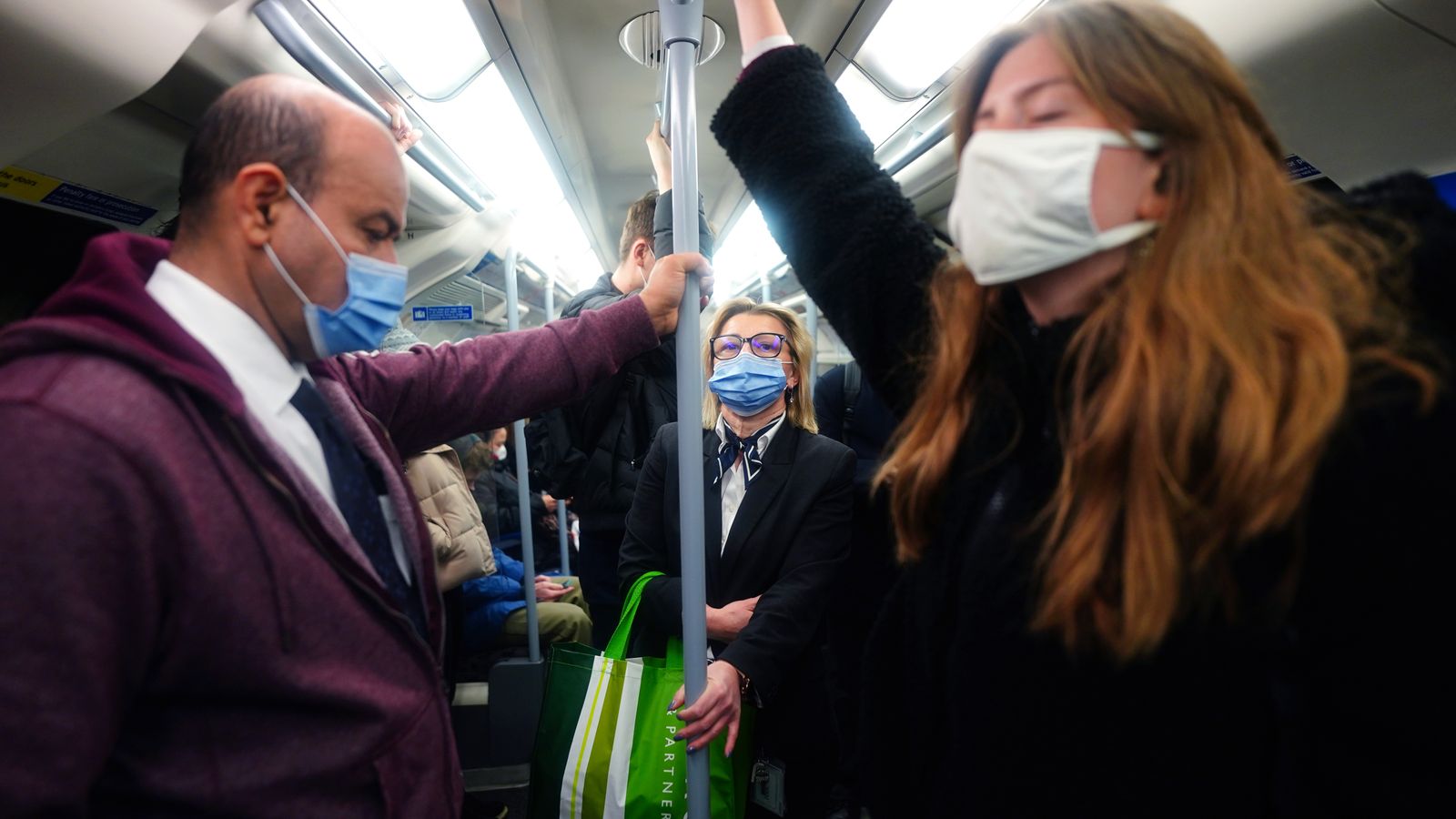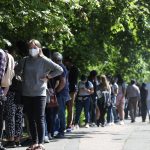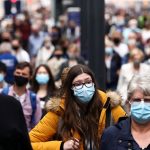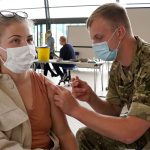People voluntarily changed their behaviour during the Omicron wave, not because Plan B restrictions were imposed on them, government advisers have been told.
Documents, published by the government the day after Boris Johnson dropped work from home advice and announced the end of the mask-wearing mandate and COVID passports from next Thursday, show even declining infection rates have to be managed.
Before Plan B was ditched, SAGE scientists warned that more than half of infections in COVID waves are after the peak and the long tail in cases still needs managing.
UK’s ‘silent success’ on virus – latest COVID updates
Please use Chrome browser for a more accessible video player
Has Omicron peaked?
Justifying the relaxation of measures, the prime minister said yesterday that cases were falling and the Omicron wave had likely peaked nationally, meaning rules could now be eased.
SAGE scientists said in their evidence that “as yet, there is no sign of a purely immunity-driven peak occurring” in England, or across the UK.
COVID: Sajid Javid says COVID could be with us forever but hopes all measures lifted by March
COVID-19: Infections falling in three of the four UK nations, says ONS
COVID: Reinfection risk from Omicron 16 times higher than Delta, ONS data indicates
“Peaks of infections have often been asymmetric in nature during COVID-19 with many more than half of infections happening during the population decline stage and so a long tail may still need managing, even after the peak,” they said.
In addition, several factors – past exposure, vaccine coverage, behaviour, testing patterns, movement around the country, and differences between age groups – “will make fine temporal patterns very volatile”, they continued, adding that peaks are likely to happen at different times in different places.
“It will therefore be very difficult to identify or project the timing of peak Omicron infections across the country”, they said.
Read more on this story:
Will the gamble pay off? Plan B rules to end in England – but is it too soon?
Please use Chrome browser for a more accessible video player
People changed behaviour voluntarily, not because of Plan B
Separate papers showed research by the University of Bristol into people’s behaviour.
More than 95% of respondents said they took some precautionary measures by making sure they were fully vaccinated and regularly used home testing kits.
Less than half of respondents (40%) said these changes were due to the implementation of Plan B.
Most people who changed their behaviour said they did so voluntarily, not because of Plan B.
Subscribe to the Daily podcast on Apple Podcasts, Google Podcasts, Spotify, Spreaker
No 10: SAGE did not object to ditching of Plan B
The relaxation of rules comes as the latest Office for National Statistics data shows COVID infection levels fell in most parts of the UK, in England, Scotland and Wales – for the first time since early December.
Downing Street said last night the government’s scientific advisers had “no objection to the approach taken” in ditching England’s Plan B rules.
Asked if the SAGE panel had advised the government to maintain mandatory mask-wearing, the prime minister’s official spokesman said: “No, we are not receiving advice from the CMO (chief medical officer Professor Sir Chris Whitty) and CSA (chief scientific adviser Sir Patrick Vallance) to keep that in place.”






















